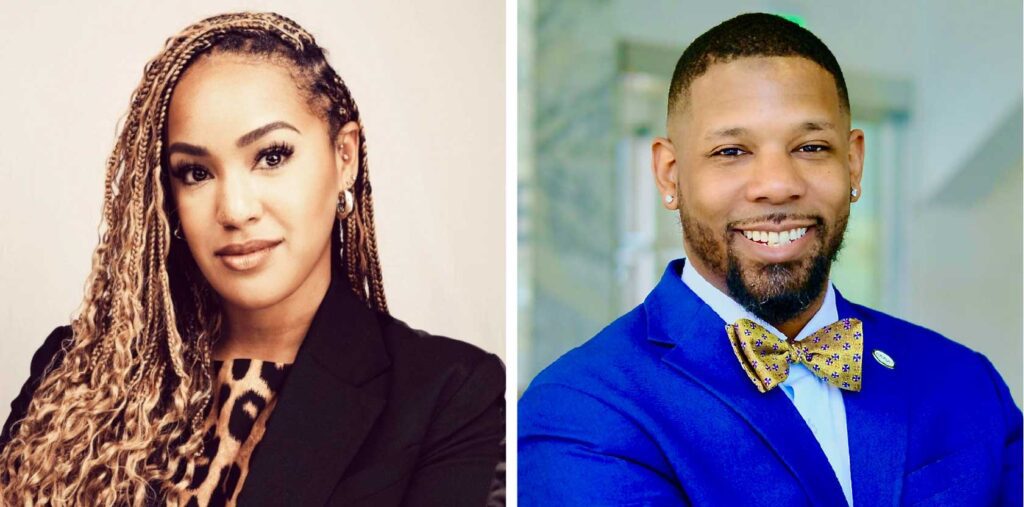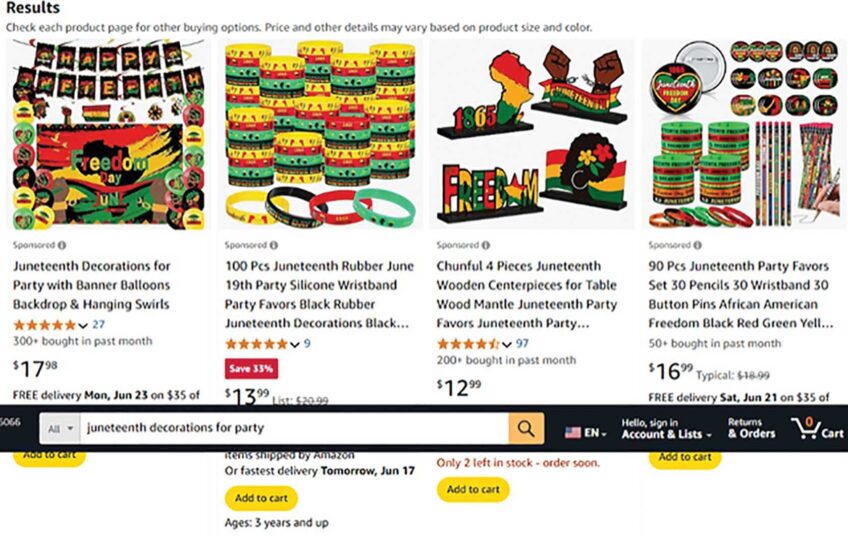
Banner Business Sponsored by The Boston Foundation
Black insurance professionals meeting in Boston last week vowed to increase minority representation in the industry by ending the pattern of haphazard and accidental entry into the potentially lucrative field.
Members of the National African American Insurance Association said the largest barrier to entry in the insurance industry was a lack of general knowledge and awareness of opportunities in a field that collects revenues from virtually every household in America.
Between life, home and car policies, the multi-trillion-dollar insurance industry remains strong even in times of economic downturn and should be a magnet for young business-minded people of color, they said.
The challenges to recruiting a more diverse insurance industry workforce were outlined at the association’s Northeast Regional Forum on April 16 at the Westin Boston Seaport. The audience included primarily Black and African American insurance and risk management professionals from the Northeast Region, including chapters from Boston, Hartford, New York City, Philadelphia, and DC.
“Adapting to Global Challenges” served as the theme of the event, with a focus on representation and recent attacks on efforts around diversity, equity, and inclusion.
In 2022, NAAIA in partnership with Marsh McLennan released “The Next Steps on the Journey: Has anything changed?” The report explores the specific experiences of Black/African American professionals in the risk and insurance industry after a similar groundbreaking 2018 report, The Journey of African American Insurance Professionals. The 2022 Next Steps report identified one of the largest barriers to entrance into the industry was the lack of knowledge and awareness about the industry. When asked about how they got into the field, several NAAIA members indicated they “fell into” the industry.
Kristine Bell, the president of the Boston Chapter of NAAIA and assistant vice president of Commercial Management Liability at Boston-based Sompo, said she had some familiarity with the industry because of her father, but it was not what she was planning to do.
“Like many people I fell into the industry, but my experience is a little bit different because I had exposure at an early age,” she said. Because her father was an insurance broker Bell had some sense of the career opportunities the industry provided. After graduating with a degree in math and economics, she was looking for career opportunities and a cousin directed her to a training program with an insurance carrier that led to the start of her career in the industry. Similarly, Patience Noah, a NAAIA member and the owner of Patience Noah Insurance Agency in Framingham, articulated a similar experience of not intending to enter the insurance industry until a mentor identified an opportunity for her.
Omari Aarons-Martin, the executive director and chief operating officer of NAAIA, outlined strategies against the narrative of “falling into” the industry. Despite having a similar experience of not intending to enter the industry, he stressed the importance of intentionally discussing the invitation into the profession.
“Our data shows that the invitation is really powerful because when African Americans and Blacks come into the insurance industry we tend to stay,” he said. “The reframe is important for us as an association to invite more African Americans and Blacks to come into the industry because that invitation leads to long, prosperous, sustainable careers.”
NAAIA’s research also found that most Black insurance professionals entered into the industry by invitation from a friend, family member, or business acquaintance who recommend they consider programs, initiatives, or employment opportunities within the industry.
“We need people who look like us who come from our community and who understand our community at every level of the industry… not just the person who’s the claims rep when you’re handling a loss… but we also need the person who is making the policy decisions and setting the guidance and parameters for the frontline managers and agents… and we also need the person who is looking at the financial model,” said Aarons-Martin.
Bell and Noah had similar perspectives on the importance of representation in the industry. “If we’re not in the industry calling attention to the things that affect our population, what’s the benefit to us?” said Bell, who stressed that without representation, “the issues that are important to us will never be raised at the appropriate level.”
From frontline services provided by agents, to claims adjusters, agency owners, actuarial modeling, and policy development, the need for Black people to be present in the risk and insurance industry cannot be understated.
Black wealth creation
In addition to the employment opportunities within the industry that lead to positions that influence decisions and policies, there are also significant opportunities to create wealth in the Black community. Black representation in the risk and insurance industry is an important means to educate community members on how to transfer wealth between generations, which has happened with less frequency compared to other demographic groups in the nation.
The inability or refusal to protect personal and business assets through insurance has often led to unprotected assets that were not passed down to subsequent generations. Commenting on the prevalence of Facebook “Go FundMe” funeral campaigns Aarons-Martin said, “we are underinsured, we don’t have the right coverages if we have coverage at all.”
There are also benefits to having a local agent who is Black, which will not only increase wealth in the community through empowering local small businesses, but also bring an important perspective in assessing claims or identifying products that are best suited to the needs of the individual business owner or family. “I see a lot of business owners who have been in business for several years who are cutting corners…. They don’t understand how insurance can protect them until I come across them and I really lay things out for them and tell them these are the things you need,” said Noah.
One of the challenges independent Black agency owners have to overcome is the perception that they are less knowledgeable or experienced because for so long white men have been the face of the agents in the industry. Noah reflects on the reluctance people have had about Black agency owners because of the lack of representation that leads to an unwillingness to trust that Black agents can help them as they grow their business. She said, “We don’t have that in our community, that’s why representation is really important.” That is why Noah makes intentional efforts to reach out to highschoolers to expose them to the opportunities that exist in the industry for employment and business ownership.
Another challenge that independent Black agency owners face is a general skepticism about the value of insurance products. Given the long history of the Black community being taken advantage of, not fully compensated for losses, pushed into predatory insurance products or products with less value, many in the community have reservations about making the investment for protections that they may never need.
The history of racial injustice in the risk and insurance industry includes its deep history and ties to slavery. However, some in the industry are making attempts to confront that history and offer gestures that signify an awareness of the dark past and endeavor to change the narrative about the industry’s complicity in the transatlantic slave trade. Lloyds of London has recently created an exhibit called Underwriting Souls that explores the ugly underbelly of the insurance industry, and its ties to slavery. Aarons-Martin embraces this and acknowledges the commitment that Lloyds made to addressing the injustices: “We’re a proud promoter of this exhibit because we want people to know the truth and we want people to feel like I need to have a part in this industry, this industry owes me something… the chance to give you a really good job, to help you set up your family and have the right coverage you need.”
Despite this sordid history, this is an industry that is recession proof given the mandatory nature of insurance. There is always going to be the need for insurance agencies, which creates a unique opportunity for Black entrepreneurs. “For the last one hundred plus years, you’ve had an agency down the street that’s been there for all these years, why is that? This industry is recession proof.” said Noah when reflecting on the business opportunities for Black entrepreneurs in the industry.
Similarly, on the carrier side, there continues to be an abundance of opportunities for Black people, despite a person’s prior background or lack of experience. There are job opportunities in every vertical of the industry, from attorneys to mathematicians to marketing, and HR professionals. John Jenkins, president of West Insurance, said, “Insurance is not one of those professions that people of color think of first. It does not require a college degree but can be as financially rewarding as a college graduate. I encourage folks to take a look at our industry. We need and welcome you.”
NAAIA is committed to increasing diversity among the ranks of insurance professionals. Mentoring has helped many Black people succeed in the industry because there is the opportunity to connect with people at various stages in their careers within the industry from managers and C suite executives to agents and independent agency owners. At a time when intentional diversity initiatives are impacting opportunities for career advancement and entrepreneurship NAAIA is committed to extending more invitations for Black people to not just fall into the industry but make an intentional decision to be a part of an industry that presents opportunities for career growth and wealth creation.






